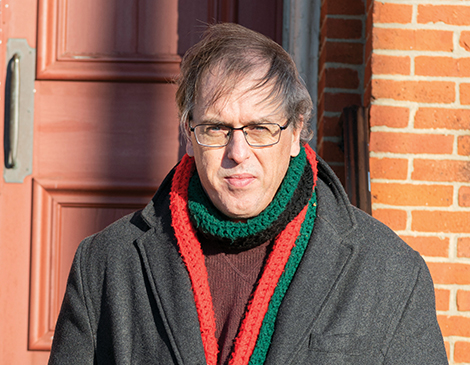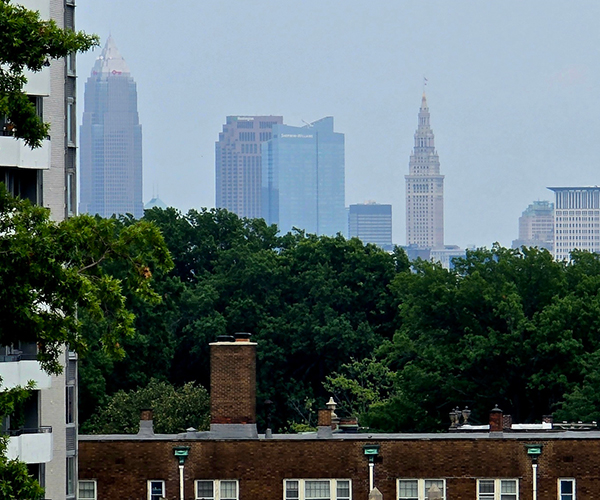Cleveland has an estimated homeless population of more than 24,000 people, according to Brian Davis.
As the director of grassroots organizing for the new Cleveland field office for the National Coalition for the Homeless, Davis hopes to amplify the voices of local homeless people, providing them a say in the local and national politics that directly affect them.
Through focus groups and organizations like the Homeless Congress — a group of advocacy leaders with lived experience of homelessness — Davis and his coalition give Cleveland’s homeless population a chance to directly effect change.
Here are four things to know about Davis and what he hopes to accomplish here.
He hopes to amplify homeless voices.
Davis and the coalition gather feedback directly from the homeless population. To do this, they organize focus groups comprised of local homeless people, inform them about policies, then gather input. The coalition documents that input and reports it to institutions such as the Department of Housing and Urban Development.
“We pay individuals who are homeless to participate in those focus groups, basically, and we’ve done them on racial equity, we’ve done them on shelter policies,” says Davis. “The National Coalition is very much focused on the involvement of people who’ve experienced homelessness.”
There's a direct impact on homeless advocacy.
Advocates for the homeless have directly impacted the waiting lists for public housing, according to Davis. When unhoused individuals began meeting as the Homeless Congress, they deduced that the Cuyahoga Metropolitan Housing Authority used only 80% of its available housing despite a clear need for the open units.
“They saw this huge waiting list at public housing, and yet 20% of the units were vacant,” says Davis. “So, we saw a problem and tried to address the issue. We went from 80% occupancy to 93% occupancy.” To do this, the organization collected data to prove that homeless people are good and reliable tenants.
It will affect the region.
The coalition intends to enact change throughout all of Ohio, using the Cleveland field office as a home base. “We certainly are going to work on more regional issues and trying to bring all those advocates together — strengthen ties between Cleveland, Cincinnati and Columbus and maybe help spread the street newspaper movement broader in Ohio,” says Davis.
They're already ahead.
“Almost every other city I’ve gone to is in a way worse position than Cleveland,” says Davis, citing strong advocacy for the homeless as well as the dedication of many religious groups in the city. “They’ve really tried as hard as they can to keep people safe compared to other cities, which are just overwhelmed with tents and overwhelmed with people sleeping outside right now.”
Three Ways to Help:
Contribute care packages of hygiene products, warm clothing and other necessities to homeless organizations such as the City Mission.
Volunteer at shelters and kitchens serving the homeless, such as Cleveland Catholic Charities and the Akron-Canton Regional Foodbank.
Advocate for local anti-poverty groups by writing local officials and attending demonstrations, candlelight vigils and other such events. The 31st annual Homeless Stand Down, for example, takes place April 23 at FirstEnergy Stadium. The event provides the homeless community with essentials ranging from non-perishable food to haircuts.




